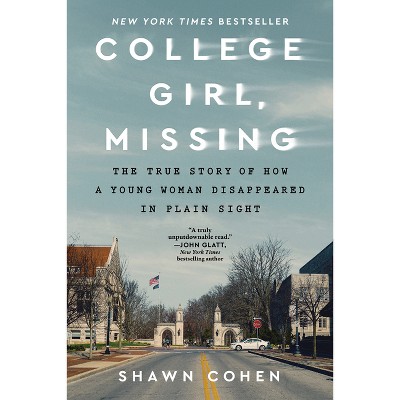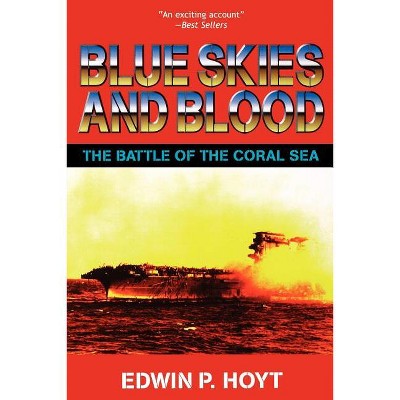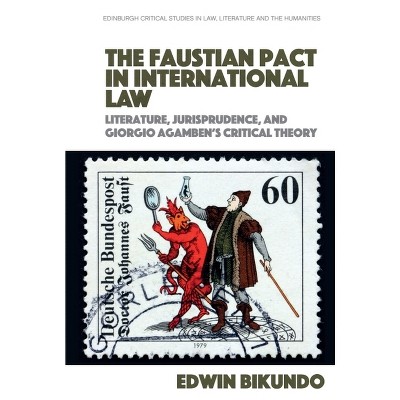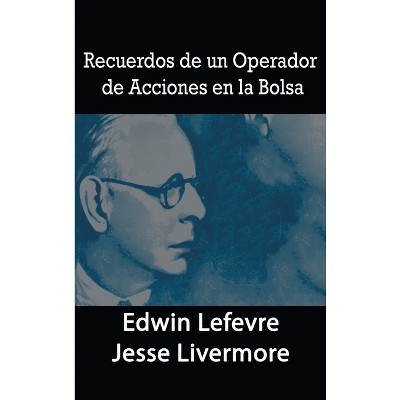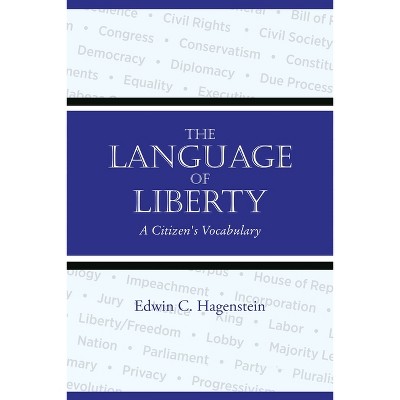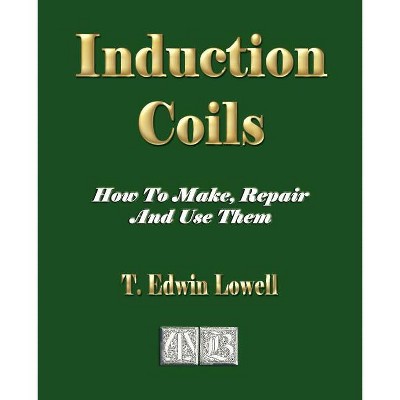Hirohito - by Edwin Hoyt (Hardcover)

About this item
Highlights
- Hoyt's biography, taking advantage of recent posthumous revelations of a Japanese foreign service diplomat, portrays Hirohito as a man of peace held captive by his role in Japanese society and government . . . Library Journal A successful new book from a topnotch writer . . . Booklist . . . provocative . . . Kirkus ReviewsWas Emperor Hirohito to blame for Japan's expansionist military policies--and its atrocities--in World War II?
- About the Author: EDWIN P. HOYT's credentials include associate editor of Collier's, war correspondent for United Press, and producer-director-writer for CBS News TV.
- 232 Pages
- Biography + Autobiography, General
Description
About the Book
Hoyt's biography, taking advantage of recent posthumous revelations of a Japanese foreign service diplomat, portrays Hirohito as a man of peace held captive by his role in Japanese society and government . . . Library Journal
A successful new book from a topnotch writer . . . Booklist
. . . provocative . . . Kirkus Reviews
Was Emperor Hirohito to blame for Japan's expansionist military policies--and its atrocities--in World War II? Was he out to make the world his empire? This most extensive biography of the emperor in English challenges portrayals of Hirohito as either an unworldly scientist or a swashbuckling conspirator who tried to conquer the globe with military might. Using sources uncovered as recently as 1991, Hoyt reveals that the emperor was fundamentally a peace-loving man caught in a turbulent period when the Japanese military gained extraordinary power. He became the virtual prisoner of an Imperial system that prevented him from leading his country into an era of peace and prosperity, his boyhood dream. Hoyt's account, backed by a decade of research, details the emperor's repeated attempts to thwart the Imperial Army's headlong drive toward war. Even when defeat was certain, Hoyt maintains, Hirohito had to outmaneuver the army in order to surrender to Allied forces. Only then, in postwar years, did the emperor see his wishes for his country come true.
To help the reader assess the emperor's life, Hoyt begins by examining the years preceding Hirohito's reign. He then focuses on the Manchurian incidents, the struggle for power in Japan, the China war, the global conflict and Japan's role in it, and the country's final capitulation. Critical passages on events preceding and during World War II, supported by the recently released diaries of men close to the emperor, detail the process by which Hirohito increasingly lost power as the army gained control. Turning his attention to the post-war years, Hoyt chronicles Japan's economic growth and the changing role of the emperor in Japanese society. Photographs from Japanese sources enhance the narrative. Hirohito: The Emperor and the Man offers new insight into the motives of a widely misunderstood leader. Hoyt's Hirohito is a quiet man with scholarly leanings; a patriot who loved his country but also admired Western qualities; a monarch who wished to act responsibly at a critical juncture but lacked the authority to do so.
Book Synopsis
Hoyt's biography, taking advantage of recent posthumous revelations of a Japanese foreign service diplomat, portrays Hirohito as a man of peace held captive by his role in Japanese society and government . . . Library Journal
A successful new book from a topnotch writer . . . Booklist
. . . provocative . . . Kirkus Reviews
Was Emperor Hirohito to blame for Japan's expansionist military policies--and its atrocities--in World War II? Was he out to make the world his empire? This most extensive biography of the emperor in English challenges portrayals of Hirohito as either an unworldly scientist or a swashbuckling conspirator who tried to conquer the globe with military might. Using sources uncovered as recently as 1991, Hoyt reveals that the emperor was fundamentally a peace-loving man caught in a turbulent period when the Japanese military gained extraordinary power. He became the virtual prisoner of an Imperial system that prevented him from leading his country into an era of peace and prosperity, his boyhood dream. Hoyt's account, backed by a decade of research, details the emperor's repeated attempts to thwart the Imperial Army's headlong drive toward war. Even when defeat was certain, Hoyt maintains, Hirohito had to outmaneuver the army in order to surrender to Allied forces. Only then, in postwar years, did the emperor see his wishes for his country come true.
Review Quotes
?On balance, Hoyt's biography is an invaluable tool in terms of refuting the Imperial conspiracy theory and in terms of reaching an objective assessment of the controversial and much-maligned Showa emperor on whom history is now about to pass judgment. Hoyt's book could be effectively utilized in a college-level course on the History of Modern Japan or in a course on the History of World War II. It is highly recommended reading for college-level history students, Japan scholars and watchers, and the interested lay person.?-Teaching History
?The death of Emperor Hirohito in 1989 inspired a spate of new books, all attempting to understand and explain his role in Japan's World War II imperialism. Among them were Edward Behr's Hirohito: Behind the Myth, which held the emperor accountable, and Toshiaki Kawahara's Hirohito and His Times, which argued the opposite conclusion. Hoyt's biography, taking advantage of recent posthumous revelations of a Japanese foreign service diplomat, portrays Hirohito as a man of Peace held captive by his role in Japanese society and government. . . ." Library Journal "A successful new book from a topnotch writer, this biography is based on the premise that Hirohito was not responsible for the military expansions of the 1930s and 40s but rather was at the mercy of an aggressive military that kept him an imperial prisoner'. Hirohito is presented as a man of peace and goodwill who was not in line with his times. During the first two decades of Emperor Hirohito's reign, Japanese foreign policy consisted, for the most part, of bullying, invading, and massacring its neighbors in East Asia and the Pacific Basin. In his biography of the emperor, Hoyt dares to contend that virtually none of this was Hirohito's fault. On the contrary, Japanese aggression was the product of a military that had gone out of control, and which, in so doing, was acting against the true wishes of the emperor. The real Hirohito, Hoyt tells us, was a man of good will and peaceful intentions' who was utterly opposed to war--but could do nothing to prevent it, being essentially a figurehead with all the responsibility for, but none of the power to influence, the disastrous course of events the men in uniform had set in motion. Thisis an interesting and informative book, even if it doesn't adequately explain why Hirohito the man--not the emperor--never really stood up to the military until the latter was prostrate in defeat. Appendix, notes, bibliography.?-Booklist
"On balance, Hoyt's biography is an invaluable tool in terms of refuting the Imperial conspiracy theory and in terms of reaching an objective assessment of the controversial and much-maligned Showa emperor on whom history is now about to pass judgment. Hoyt's book could be effectively utilized in a college-level course on the History of Modern Japan or in a course on the History of World War II. It is highly recommended reading for college-level history students, Japan scholars and watchers, and the interested lay person."-Teaching History
"The death of Emperor Hirohito in 1989 inspired a spate of new books, all attempting to understand and explain his role in Japan's World War II imperialism. Among them were Edward Behr's Hirohito: Behind the Myth, which held the emperor accountable, and Toshiaki Kawahara's Hirohito and His Times, which argued the opposite conclusion. Hoyt's biography, taking advantage of recent posthumous revelations of a Japanese foreign service diplomat, portrays Hirohito as a man of Peace held captive by his role in Japanese society and government. . . ." Library Journal "A successful new book from a topnotch writer, this biography is based on the premise that Hirohito was not responsible for the military expansions of the 1930s and 40s but rather was at the mercy of an aggressive military that kept him an imperial prisoner'. Hirohito is presented as a man of peace and goodwill who was not in line with his times. During the first two decades of Emperor Hirohito's reign, Japanese foreign policy consisted, for the most part, of bullying, invading, and massacring its neighbors in East Asia and the Pacific Basin. In his biography of the emperor, Hoyt dares to contend that virtually none of this was Hirohito's fault. On the contrary, Japanese aggression was the product of a military that had gone out of control, and which, in so doing, was acting against the true wishes of the emperor. The real Hirohito, Hoyt tells us, was a man of good will and peaceful intentions' who was utterly opposed to war--but could do nothing to prevent it, being essentially a figurehead with all the responsibility for, but none of the power to influence, the disastrous course of events the men in uniform had set in motion. Thisis an interesting and informative book, even if it doesn't adequately explain why Hirohito the man--not the emperor--never really stood up to the military until the latter was prostrate in defeat. Appendix, notes, bibliography."-Booklist
About the Author
EDWIN P. HOYT's credentials include associate editor of Collier's, war correspondent for United Press, and producer-director-writer for CBS News TV. For more than thirty years he has been a freelance writer, producing critically acclaimed works of military history.




